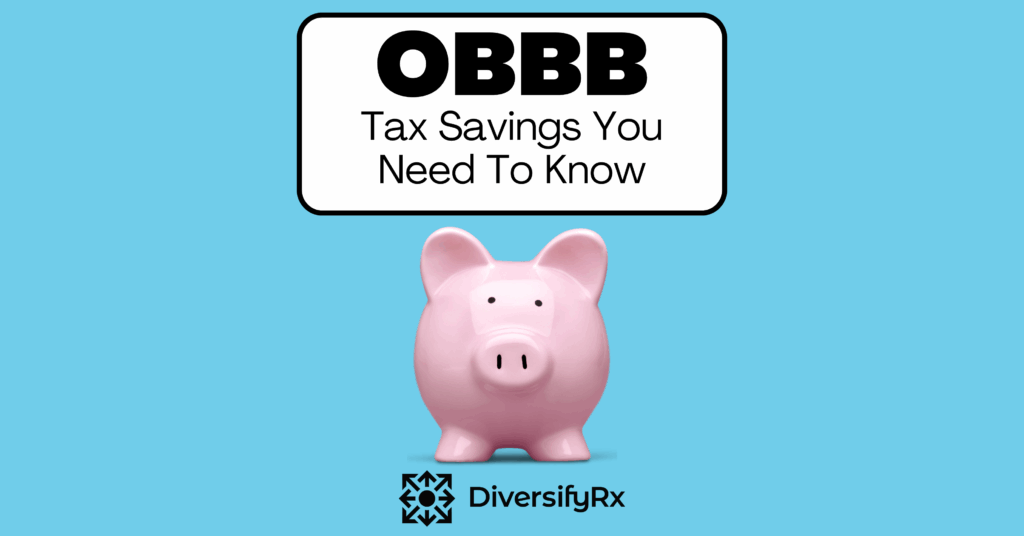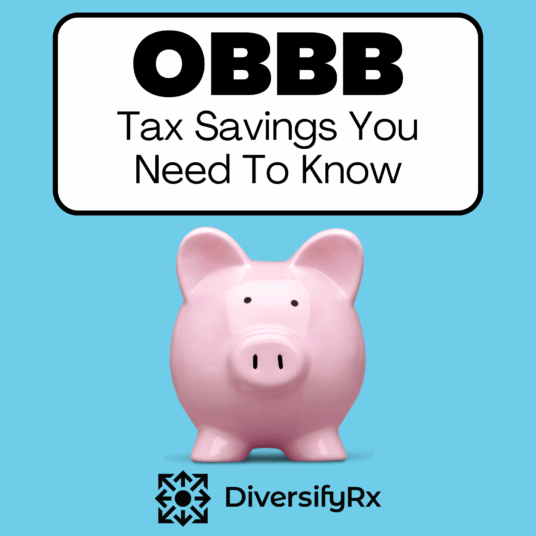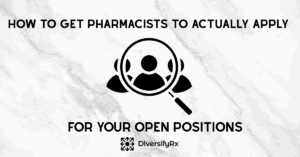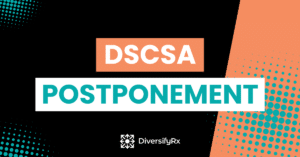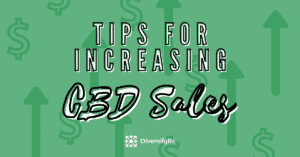The OBBB (One Big Beautiful Bill) is law now. Check out these tax savings for pharmacy owners and employees.
⚠️ Tiny Legal Disclaimer:
This tax savings blog is for informational purposes only. I am not a CPA, tax attorney, or your personal IRS whisperer. These aren’t tax instructions, just friendly insights. Please consult your favorite tax pro (hopefully one who looks at spreadsheets as foreplay) before acting on anything here.Access the full OBBB content HERE.
Love It or Hate It the OBBB is now on the books. There are truly a ton of new tax perks that all pharmacy owners will be able to take advantage of. AND… a bunch of boost for all the W2 employees out there. It was hard to narrow it down to my top 25 tax savings changes (I originally planned for a top 10, ha!). So, there are far more changes than what I have detailed out here. These were the ones that I felt would have the biggest impact for pharmacy owners. These are not in any order of importance or impact. Let’s go!
Tax Savings: Personal Deduction and Income Tax Changes
1. Increased Standard Deduction
If you don’t itemize deductions, you’re in luck! The standard deduction just got bumped up—$2,000 more for single filers and $4,000 more for joint filers. That’s more of your income shielded from taxes, no effort required.
2. Expanded Child Tax Credit
The Child Tax Credit jumps to $2,500 per qualifying child and is now fully refundable. So yes, even if you don’t owe taxes, you might still get a juicy refund check just for parenting.
3. Student Loan Interest Deduction—Uncapped!
No more income phaseouts. Whether you earn $50K or $400K, if you’re paying interest on student loans, you can deduct it. Finally—something in higher ed that’s helpful after graduation.
4. Childcare Expense Deduction
Now up to $5,000 of childcare costs can be deducted “above the line.” That means it reduces your taxable income even if you don’t itemize. Daycare just got a little less brutal on your wallet.
5. Higher SALT Deduction Cap
The state and local tax (SALT) cap is raised from $10,000 to $15,000 (or $30,000 if you’re married). High-tax state residents, rejoice—this one’s for you.
6. Home Office Deduction Returns—for Everyone
W-2 employees working from home now get to claim a home office deduction, not just freelancers and 1099ers. That corner of your bedroom with the ring light? Write it off.
Small Business Tax Savings
7. 100% Bonus Depreciation Extended
Businesses can continue writing off the full cost of qualifying purchases (like equipment and vehicles) in the year they’re bought—through 2027. Buy once, deduct all.
8. Section 179 Expensing Expanded
The Section 179 deduction limit is now $2 million, with phaseouts starting at $5 million. Great for small businesses making smart investments in tools, tech, or trailers.
9. QBI Deduction Made Permanent
The 20% Qualified Business Income deduction is here to stay. If you own an LLC, S Corp, or are self-employed, you can likely deduct a fifth of your business income right off the top.
10. New Solo 401(k) Deduction Bonus
Self-employed? You can now deduct an extra $3,000 for contributions to your Solo 401(k). Save for retirement and get rewarded now.
11. Startup Expense Deduction Increased
The cap for writing off startup costs rises from $5,000 to $20,000. Starting a business just got more financially friendly.
12. Work Opportunity Tax Credit Expanded
You can now claim tax credits for hiring long-term unemployed individuals or even underemployed gig workers. Hire smart, get rewarded.
13. Apprenticeship Credit
Train someone and get paid for it! Businesses earn a tax credit of up to $4,000 per apprentice they hire and train. Workforce development just paid off—literally.
14. Health Insurance Reimbursement Credit
If your small business reimburses employees for their personal health insurance premiums, you now get a 50% tax credit. It’s a win-win for employers and staff.
15. Service Businesses Now Get the QBI Deduction Too
Used to be lawyers, accountants, and consultants were excluded at high incomes. No more. The income limit is gone—everyone can now claim the 20% pass-through deduction.
Investment, Retirement, and Real Estate OBBB Tax Changes
16. Capital Gains Tax Thresholds Raised
More middle-income earners qualify for the 0% or 15% capital gains rate. Sell those appreciated assets and keep more of the profit in your pocket.
17. IRA & Roth Contribution Limits Increased
You can now contribute up to $8,000/year to your traditional or Roth IRA—per taxpayer. More tax-deferred or tax-free savings power.
18. Discounted Roth Conversion Window
A temporary 3-year window lets you convert pre-tax retirement funds to Roth at a reduced tax rate. Great for people between jobs or in a low-income year.
19. Credit for Renting to Small Businesses
Commercial landlords can now get $2,000 per year per qualifying small biz tenant. So if you’re renting out space to the little guys, Uncle Sam says thanks.
20. Real Estate Professional Status Simplified
Easier rules to qualify as a real estate pro—so you can deduct losses like a boss (instead of watching them collect dust on a Schedule E).
Family Health and Education
21. Health Savings Account (HSA) Supercharged
HSA limits are higher—and you can now use them for fitness expenses, vitamins, and telehealth. It’s like a health piggy bank with superpowers.
22. Simplified & Expanded Education Credit
The education credits are now easier to claim and worth up to $3,000/year per student. Applies to tuition, books, and even certification programs.
23. Credit for Caring for a Parent
Taking care of Mom or Dad at home? You may now be eligible for a $2,500 credit to offset eldercare expenses. Because family matters—and now the tax code agrees.
24. First-Time Homebuyer Credit Returns
New homeowners may qualify for up to $10,000 in a refundable credit. It’s phased out at $400K, so most middle-income buyers are still in the sweet spot.
Compliance And Tax Payer Rights
25. Small Biz Audit Protections
If your business brings in under $5 million in annual revenue, new rules limit the scope and length of IRS audits. Sleep a little easier knowing the audit boogeyman has boundaries.
I live for helping pharmacy owners have better and more profitable pharmacies. And where there’s profit, there’s taxes. This relationship is why I have a whole section in Pharmacy Badass University to help with tax savings. Paying less taxes (legally) is a great way to boost your personal wealth and increase financial stability.
Check out our Pharmacy Badass University membership options HERE.



